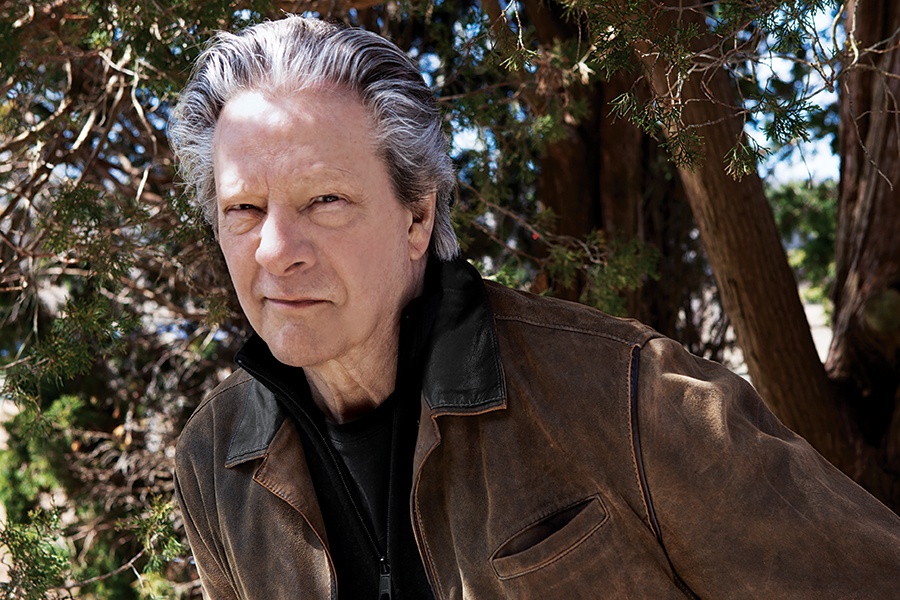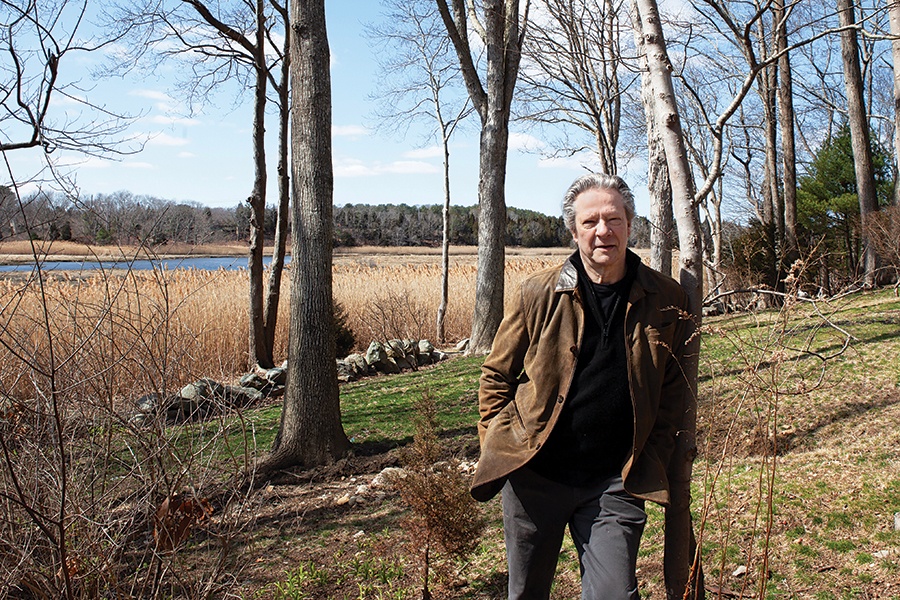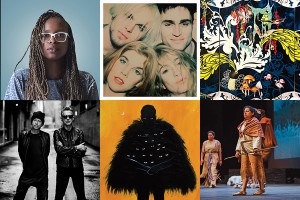The Interview: Kingston Resident and Oscar Winner Chris Cooper
Boston’s most talented and unassuming Academy Award–winning actor is also the ultimate…well, you just have to meet him.

Photo by Mona Miri
When you think of the area’s most famous movie stars, Chris Cooper probably isn’t the first name that leaps to mind. But over the past couple of decades he’s quietly become a fixture on the South Shore, where Kingston residents have gotten used to the sight of Cooper and his wife, acclaimed actress and writer Marianne Leone, shopping at the local grocery store or making a routine run to the dump. Unreserved in front of the camera, off-screen Cooper is resolutely low-key, bordering on shy, as he talks about the release of his latest movie, Irresistible, this month, life in the ’burbs, doing a Boston accent, and the one actor he never wants to work with again.
Are people in Kingston surprised to learn that they have an Oscar winner in the neighborhood?
Oh, I think very few people know or care that I live in Massachusetts. Marianne and I stay under the radar pretty well.
So you can pretty much go to the supermarket without people bothering you?
The people in Kingston are wonderful. I go to the dump, run into the same guys, the same faces, and people are terrific.
Can you do a Boston accent?
Did you see The Town? Ben Affleck supplied me with recordings of guys from Charlestown reading the dialogue. There was one in particular where I was just kind of like, “That’s the voice I want to try to imitate.”
When did you first know that you wanted to be an actor?
Honestly, probably in grade school. I was so knocked out by Brando in On the Waterfront. You know, my dad was a doctor and we didn’t get to see him very often. We’d go on house calls with him at night just to be with him. But what that led to is that I would often accompany my mom to the films that she wanted to see.
What was your parents’ reaction when you told them you were going to become an actor?
Dad thought acting was probably the silliest thing a person could do. And when I got serious about it, he’d say, “You want to see drama?” And he would take me to the hospital and show me motorcycle accidents and different injuries.
Would you consider yourself a born entertainer?
I don’t know about that, but when my mother and brother and I went on house calls with my dad, Mom had us sing songs for his patients. We’d sing “Swing Low, Sweet Chariot” and “I’ve Got Spurs That Jingle, Jangle, Jingle.” One time, my brother and I were sitting at the foot of this patient’s bed. We sang a song and then Dad whipped the sheet off the foot of the bed and said, “This is gangrene.” So that’s what started my early singing career.
By now, of course, you’ve worked with practically every great living director. Is there one you’re dying to work with but haven’t?
I’d like to work with Martin Scorsese someday, but there are a whole bunch of directors I’d love to work with. The talent pool is unbelievable. I did get to do two films by women this year, which was excellent.
Anything you’d erase from your résumé?
No, no real regrets. But I was denounced by Bob Dole from the Senate floor for playing Torch in Money Train [chuckles]. As far as regrets of films that I didn’t do that I wished I had: I kind of regret not doing The Assassination of Jesse James by the Coward Robert Ford. I was to play Brad Pitt’s brother. But Sam Shepard, I think, did a fabulous job.
Does Marianne help you pick your roles?
We really consider ourselves a team and she certainly reads everything that I’m interested in. I want her take on things. Like with American Beauty, I continued getting the rewrites for that script, and it got darker and darker, and I said, “Do I really want to play this character?” She said, “When you start feeling afraid of a role, all the more reason to take it on.” And thank goodness she did, because American Beauty paid off very well for my career.
Did you do Little Women, which was shot just outside of Boston, for her?
Yeah. I mean, it was also convenient. I could drive to work, which was so cool. But I guess I wanted her to be proud of me. She loves that book so much.
While filming that, weren’t you also filming the Mister Rogers biopic A Beautiful Day in the Neighborhood?
Both of them were Sony films. I was in Pittsburgh shooting A Beautiful Day in the Neighborhood, and my final day of shooting, we went right up to midnight. They told me to pack up and bring my luggage to the set because I was going directly to the airport afterward. Sony had a private jet waiting for me, and I was flown to Hanscom Field, which is really close to Concord. Six hours later I was in muttonchops and period costume, doing one of the biggest scenes I had in Little Women.
In your career, have you had to do the balancing act of, “Okay, this is a movie I feel strongly about, but it’s a small independent, so then I have to do a big blockbuster to pay the bills”?
When our son, Jesse [who died of sudden death in epilepsy at age 17], was living and we had a lot of medical expenses, sometimes I would do what Marianne and I would call a “whore job.” They provided money for the needs that Jesse had, for things like our little indoor pool that was great therapy for him.
You’re known for disappearing into your roles. Which one do you think is the most like you in real life?
Oh, boy. I don’t want to jump the gun, and I haven’t seen it yet, but Irresistible, which comes out this month, felt pretty close. My background as a younger man was raising cattle on a ranch, and being familiar with farm animals and horses. That experience served me very well in films such as Lonesome Dove, The Horse Whisperer, and Seabiscuit. But I think there were a handful of films—they don’t come to mind immediately—that just felt so comfortable. I put it like this: There are jobs in this business that fit like a glove, and you don’t have to beat yourself up doing research and all that business.
What role was the least like you?
American Beauty. But even in playing Colonel Fitts, I learned about the shadow side, which is that phenomenon when you meet a person and there’s something you instantly dislike about them, and then you realize, “Oh, that’s something very much inside me.” With that character, I think it was maybe his self-loathing.
Where do you keep your Supporting Actor Oscar for Adaptation?
We keep it in Jesse’s bedroom. It’s nearby, because a lot of folks who come by, delivery guys or whoever, they know what’s up, and they want to see the statue. I usually end up taking a picture with them.

Photo by Mona Miri
Does it bother you to be referred to as a “character actor”?
I love it. It’s a great honor to hear that. You don’t hear about too many character actors in the business anymore. I get to choose what I want to do. I’m away from L.A. and the business, which I think is really, really healthy. And I have an amazing wife whom I adore and love to be with. I don’t know, I just couldn’t be more content.
Is there anyone you’d never work with again, and why?
This is another thing where I feel really so blessed. I did a little TV movie years ago. It was a Western, and this guy was the lead. It seemed like from day one he got off on the wrong foot with everybody. He behaved as if he knew everything about cameras and lighting. And everyone was just so put off by him and his know-it-all attitude. But he’s the one jerk that I’ve worked with. And I would not be comfortable working with him again.
Best location you ever worked in?
Italy and Paris. And, you know, Prague was fun.
The worst?
I gotta say maybe the Philippines. Some of those remote islands, 150 miles from Manila, are pretty rough.
When you did October Sky, did you know that co-star Jake Gyllenhaal was going to make it big?
Yeah. And Jake was so young that he had to have a chaperone. What I noticed was this remarkable dedication for such a young kid, and a wonderful attitude on set. And he did a terrific job.
There’s so much downtime on a movie set. What do you do to kill the time?
I’ll go back to the trailer and study. Since we’re talking about Jake, and this is something that I’ve caught in a bunch of his interviews, he mentions me. Because early in his career, he did come to me for a little advice. And in a nutshell, I said, “Do your fucking homework, and never have this attitude, after the scene is shot or after the audition, of “Man, if I just put in another hour, or a little more time….”
Do you dislike watching yourself on-screen, or are you okay with it at this point?
I think it’s useful, especially to see video as you’re working on a project. Are my choices working? Am I over the top? What’s not coming across? But as I get older, I trust myself more.
Is there a historical figure that you’d love to play?
Yeah, I frankly think it’s a brilliant idea, and I don’t know why nobody’s come up with it, but could you imagine a limited series on the life and career of Frank Lloyd Wright? I don’t know if his estate won’t allow it or what, but I think, “Boy, I’d jump on that.”
Most outlandish thing you’ve done or greatest lengths you’ve ever gone to for a role?
I lost 25 pounds for Adaptation. I got down to my high school weight. I got hair extensions. And the false teeth. Those really took some getting used to. They sent them to me like a month and a half before we started shooting. And, you know, I didn’t expect that I was going to do a nude scene [laughs].
You do emotionally constipated really well. Why do you think that is?
Well, because a lot of these characters that I play, I’m playing my father’s generation.
How was it to be directed by Jon Stewart in your latest film, Irresistible?
I think he’s really brilliant. When you see him and the people he surrounds himself with, Steve Carell and Stephen Colbert, what whip-smart people they are. Beyond Jon’s comedic talent, he has a real passion. While I was working with them, I got to be kind of a fly on the wall as the camera and lighting were set up to shoot the scenes for the day. It was interesting to see these comedians; they’re pretty damn serious.
Was there a lot of improv?
Yeah, and that’s different from a lot of other directors. The way that I was brought up, especially with John Sayles, who gave me my first film job, is that you don’t fuck with a John Sayles script. You handle that as you do a stage play, and you never fuck with a playwright’s dialogue.
So how much did you actually ad-lib?
What we would do is shoot the scene as written, and then once Jon got everything he wanted, Jon would kind of turn Steve Carell loose. We’d shoot the scene maybe another two times, and some of it was pretty hilarious.
In the movie, you play a political candidate. Would you make a good politician?
Oh, my God, the worst. You’ve got to realize that a lot of people in our business, I daresay, are somewhere on the spectrum. I certainly am. If I did in public the things that I do in private, it would be pretty bizarre. Since I was a child, I’ve had a horror of public speaking. I’m comfortable if I have a script in my head. But speaking off the cuff? No way.
Who’s the funniest person you know?
My wife. This was a whole interview about being lucky, I guess.


